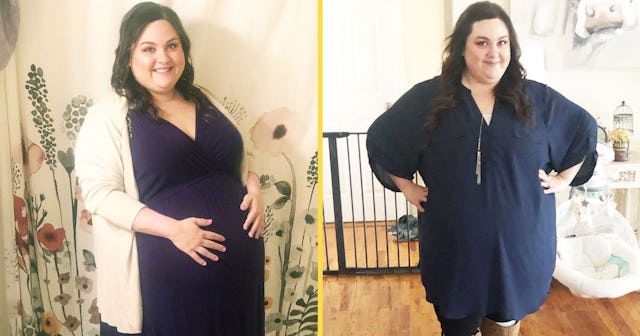I'm Not Insulted When You Call Me Fat

When I write or speak about my body, I call myself fat. It’s the word I prefer. It’s simple, concise and conveys what I’m trying to say. I live my life in a body that is not thin. By all measurable standards, I’m fat.
The bluntness of that descriptor jolts people sometimes. We have been conditioned by years and years of diet culture to consider the word an insult. Fat, in many minds, is not just the opposite of thin. It’s also the opposite of beautiful, sexy, valuable, and acceptable.
Sometimes people see me describe myself or my body as fat, and they assume that I also believe I am unattractive or that my goodness has somehow been diminished by the size of my body. Often, they reassure me that I’m beautiful. They almost always tell me I should use a different, “less insulting” adjective. “Plus-size” is almost always the suggested alternative.
One woman recently told me I should be fired for using the word fat.
Sigh. People. It’s just a word. A tiny little word with three measly little letters. I could insist on some other, more complicated identifier but, like, why? I’m busy, and fat gets the point across just fine.
I do say plus-size sometimes, because variety is the spice of life, but I will continue using the word fat to describe my body and bodies like mine for a few reasons. Here’s why.
I want to.
Honestly, what else matters? I am an adult human being, and I get to choose my own descriptors. I choose fat. That’s what feels right to me. If another person asked me not to call them fat, I would absolutely respect their wishes. But most actual fat people that I know are fine with it.
The word fat is morally neutral, and so is being fat.
Fat is only a terrible thing to say if you think fat is a terrible thing to be. I don’t. Some people have more fat on their bodies than others. We live in a society that values thinness as the one and only acceptable body type, but I disagree. Whether you are a plus-size person who is comfortable in your body as it is, or a person who is seeking to have a smaller body, you are still valuable and acceptable exactly as you are. It is my hope that more people will someday see body size as a simple fact instead of a measure of value. Being candid about my fat body is part of furthering that idea.
Using the word fat identifies me as a part of a community.
I don’t align myself with any specific fat-positive movements, but I am a huge fan of a lot of fat-positive voices. When people read my work or talk to me, I want them to naturally find their way to other people’s voices. There are people out here trained in the psychology of body size. We have activists working toward fat-friendly laws and workplace policies. Fat-positive stylists exist to show people their fashion options in larger sizes. There is a wealth of fat-friendly information online, and most of the people I admire use the word fat to describe bodies like theirs and mine. Rather than fighting for a different term, I choose to use the same one. We have the same goals.
The word fat has been used as a weapon against me.
When I call myself fat, it removes the heads from other people’s arrows. If I take the power away from the word fat, we can start talking about things that matter. Sure, I’m fat. My body is big. Okay, got it. Now, let’s talk about why you think that’s so terrible. Let’s confront some of the ideas you hold about what my life and health must be like. We can have a real discussion if you want, but not if we are arguing semantics. The world is going to call me fat anyway. Fighting about a three-letter word just delays the parts of the conversation that I want to have.
If calling a person fat really weirds you out, then don’t do it. Honestly, I don’t care how other people describe my body if they’re not trying to insult me. Call me plus-size, bigger, chubby, whatever you prefer. Just think about why you’re so afraid of the word fat. I bet you’ll find a lot of biases and fat-phobic ideas rattling around in your brain. We all have them. Even me. You have to confront them on purpose and set out to change your mind. They won’t disappear on their own.
Left unchecked, fat-phobia can grow into something truly venomous and evil.
The online world is brutal to fat people. Have you checked the comments on an article about anything related to fatness lately? Not a single week passes where someone doesn’t call me names. This week it was “land whale.” How clever. Many of the most degrading people will double down when confronted, so unless I want to be insulted again in a different way, I just have to ignore them.
My heart is tender. It always will be. When people say harsh things about my value, my husband, or my family because of the size of my body, it still hurts. I could try to toughen up, but I don’t want to. My capacity for compassion and forgiveness makes me proud to be me. I don’t want to change my heart for a cruel world.
But I can take control of the word “fat” and make it my own. That’s what I’ve chosen to do.
This article was originally published on